Dear Mom,
Learn about breastfeeding
Make healthy food choices for you and your family
Get referrals to healthcare and other community programs
Learn how to keep your baby healthy and safe
Buy healthy foods
The tips on this page do not replace your healthcare provider’s advice. Write down questions to ask before you go to your prenatal checkups.
When you visit your local WIC office, you can learn more about healthy eating. We hope you enjoy all that WIC has to offer.
Sincerely,
Your WIC staff
Get Prenatal Care
- 1 checkup each month for the first 6 months.
- 2 checkups each month in the 7th and 8th months.
- 1 checkup each week in the 9th month.
- 1 checkup 2 to 6 weeks after your baby is born (postpartum).
Choose Healthy Foods for You and Your Baby
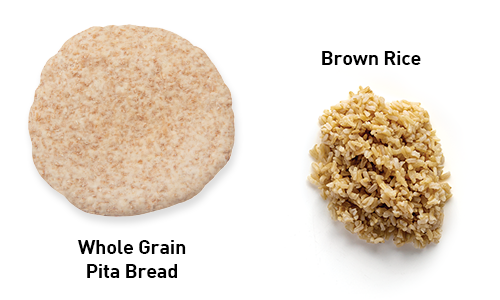
- 1 slice bread or tortilla
- ½ bagel or hamburger bun
- ½ cup cooked rice, noodles or cereal
- 1 cup flake-type cereal
- Oatmeal
- Whole wheat bread or rolls
- Brown rice
- Whole wheat pasta
- Tortillas (whole wheat or corn)
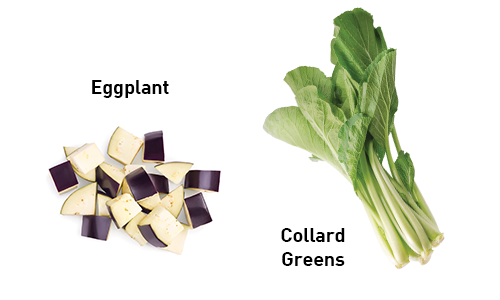
(5-7 servings)
- 1 cup raw or cooked vegetables
- 1 cup lettuce or other leafy greens
- ½ cup vegetable or tomato juice
- Eat many kinds and colors: dark green, orange, red, yellow, purple, and white
- Add to: scrambled eggs, rice, noodles, salads, and casseroles
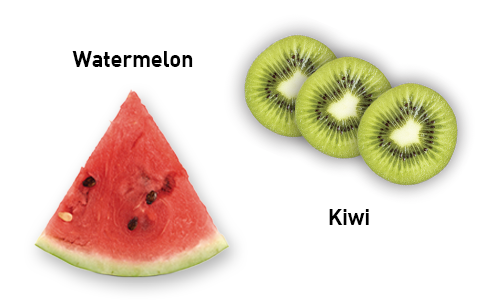
(2-3 servings)
- ½ cup chopped or cooked
- 1 fruit – apple, orange, peach, etc.
- ½ cup 100% fruit juice
- Eat many kinds and colors: red, yellow, orange, blue, green, purple, and white
- Put sliced or chopped fruit on cereal, pancakes, pudding, and frozen yogurt
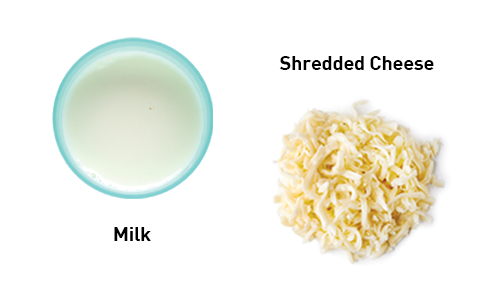
- 1 cup milk
- 1 cup yogurt
- 1 to 2 slices cheese
- Choose 1% or non-fat milk
- If it is hard to drink milk, get ideas from WIC
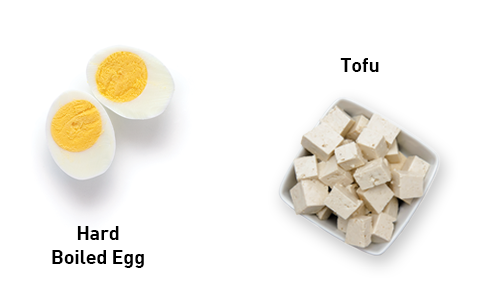
- 1 ounce meat, chicken, turkey, or fish
- ¼ cup canned light tuna
- 1 egg
- ¼ cup cooked beans or tofu
- 1 tablespoon peanut butter
- A 3-ounce serving is the size of a deck of cards
- Choose lean meats: bake, broil, or grill them
- Eat more beans; ask WIC for recipes
Sample Menu
Breakfast
½ cup blueberries
1 cup water
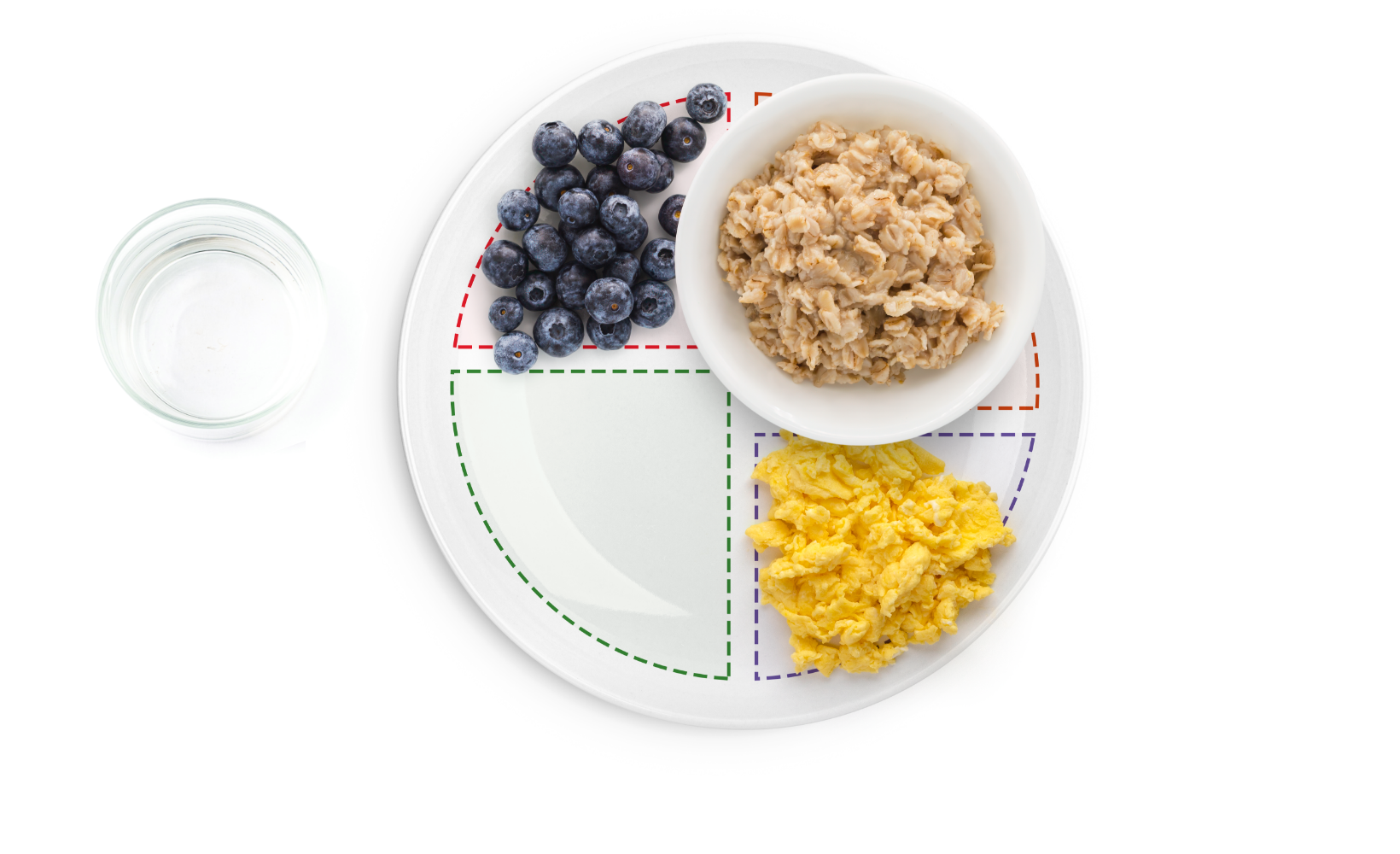
½ cup cooked oatmeal
1 cooked, scrambled egg
Lunch
½ cup cooked broccoli florets
1 cup water
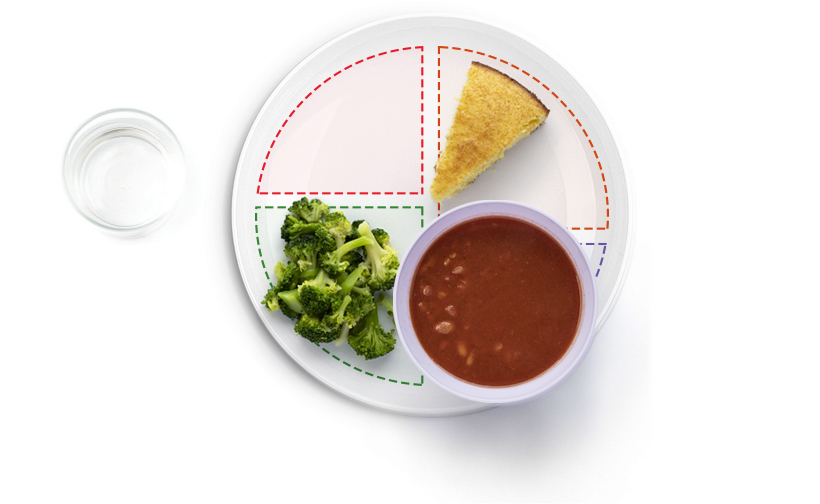
1 ounce cornbread
½ cup tomato sauce
and ¼ cup pinto beans and ¼ cup red beans
SNACK IDEAS
1 cup 100% orange juice
1 cup cut up melon
½ cup low-fat yogurt
5 or 6 whole grain crackers
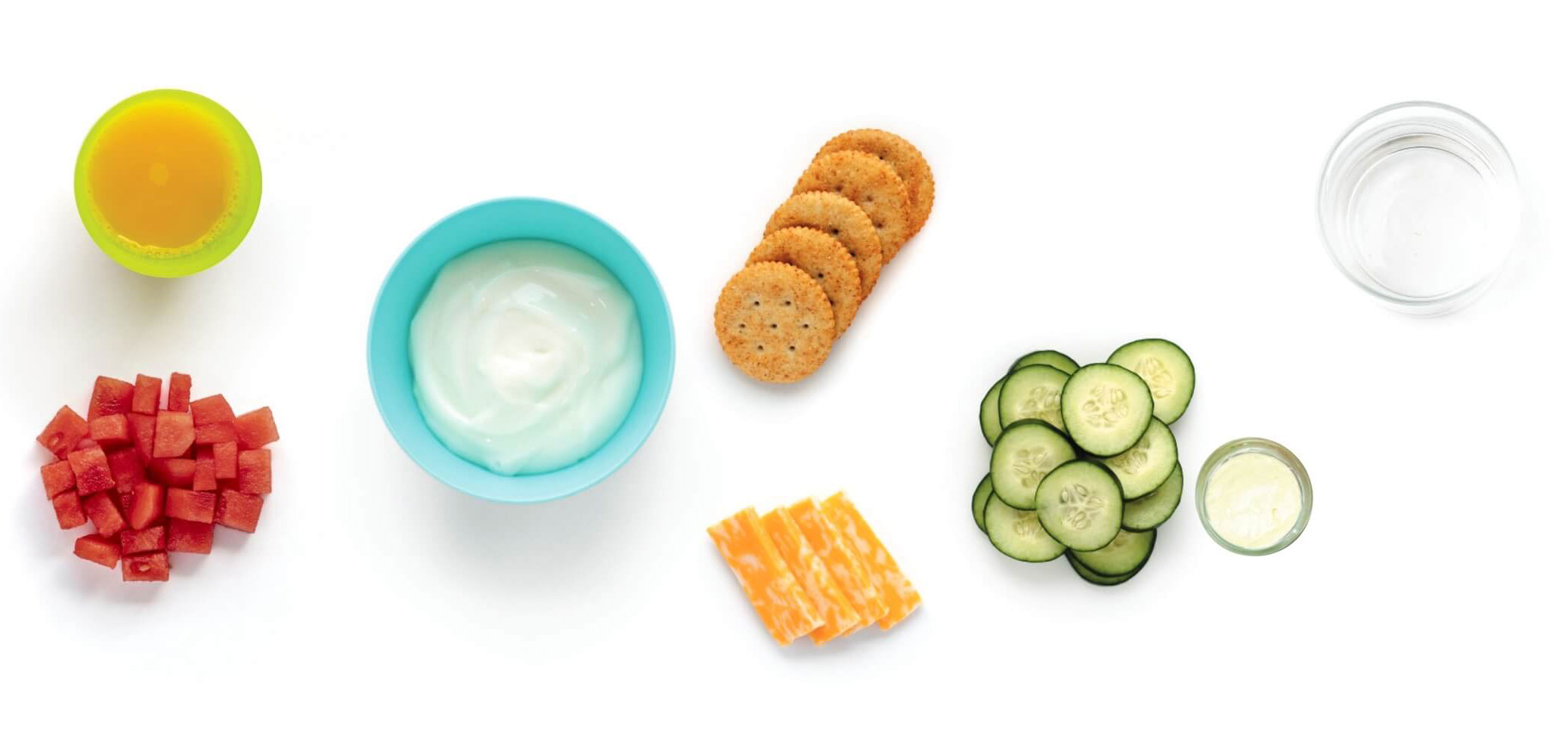
3 or 4 slices cheese
½ cup sliced cucumbers with 1 tablespoon dressing
water between meals and snacks
Dinner
1 cup mixed, green salad with ¼ cup tomato
with ½ hard-boiled egg with 1 tablespoon dressing
½ cup cooked, sliced carrots
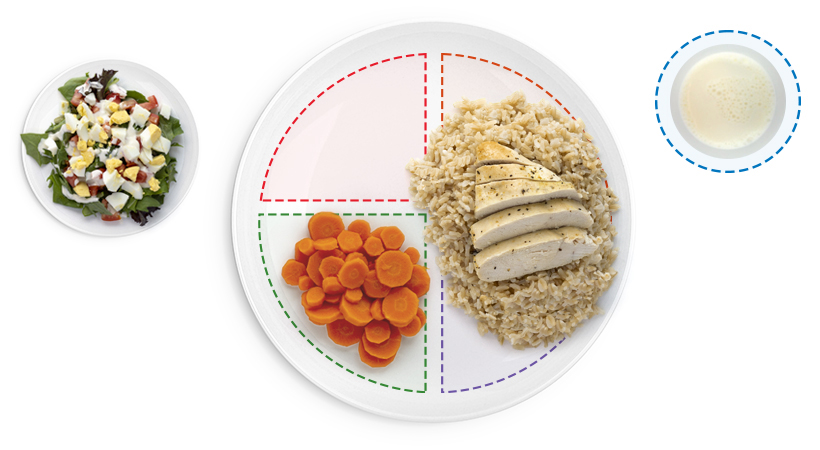
1 cup cooked brown rice
with 3 ounces baked, sliced chicken
1 cup non-fat or 1% milk
Snacks: Tasty, Healthy, and Easy
EXAMPLE: Pita Bread + Cucumber + Hummus
- Bagel
- Cereal
- Whole wheat or corn tortilla
- Crackers
- English muffin
- Graham crackers
- Oatmeal or grits
-
Pita bread
- Raisin bread
- Whole grain bread
- Granola or trail mix
- Popcorn
- Broccoli
- Carrots
- Green peppers
- Edamame
- Tomato
- Celery
- Apple
-
Cucumber
- Banana
- Grapes
- Melon
- Orange
- Peach
- Pineapple
- Raisins
- Strawberries
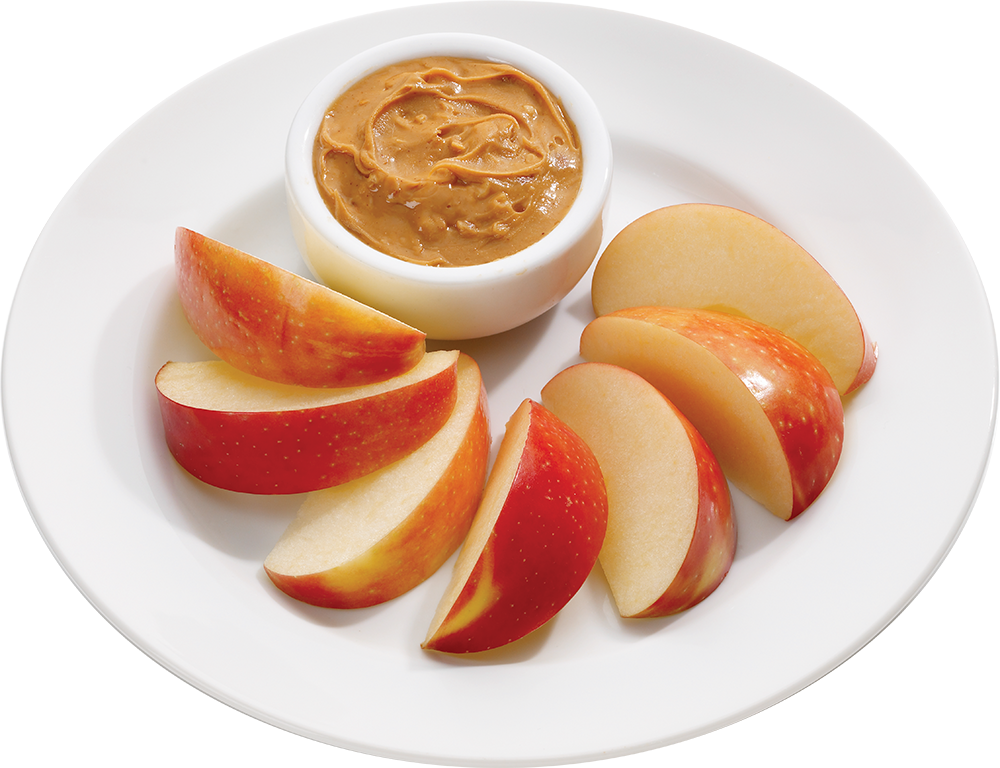
- Cheese
- Cottage cheese
- Yogurt
- Egg, cooked
- Nuts (like walnuts)
- Peanut butter or nut butter
-
Hummus
Fast Food Restaurant Tips
- Grilled chicken sandwich
- Hamburger or cheeseburger
- Main dish salad or side salad
- Pizza topped with green peppers, tomatoes and mushrooms
- Bean burrito
- Baked potato with vegetable and cheese toppings
- Fruit
- Water, low-fat milk, or 100% juice
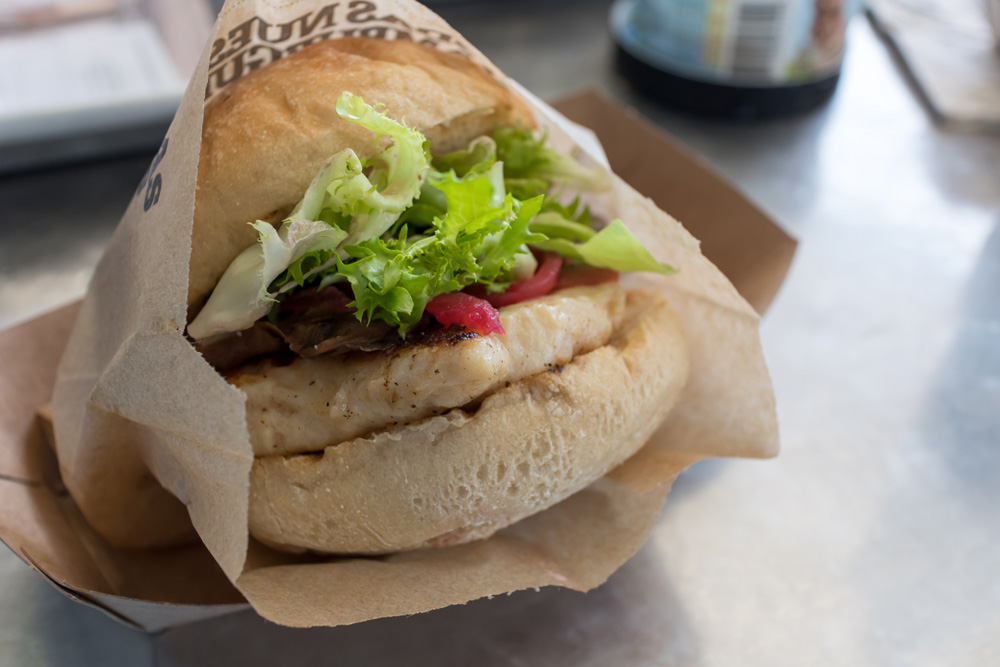
Food Safety Tips

Wash your hands with soap and water before you eat or prepare food.

Wash vegetables and fruit with water before eating or cooking.

Cook beef, pork, chicken, turkey, fish, and seafood to the well-done stage.

Heat to steaming before eating hot dogs, cold cuts, and deli meats like bologna, salami, or ham.

Ask WIC staff or your healthcare provider what fish is safe and the recommended amounts to eat during pregnancy.
Learn more on how to make healthy choices for you and your family about fish by checking out this Fish and Seafood Guide.
- Tilefish, swordfish, king mackerel, or shark
- Raw oysters, or fish like sushi, sashimi, or ceviche
- Undercooked, rare, or raw meat like chicken, beef, or turkey
- Deli meat, spreads, or patés that haven’t been heated to steaming
- Raw or soft-cooked eggs
- Smoked meats
- Uncooked hotdogs
- Feta, blue-veined, Brie, or Mexican-style (queso blanco or queso fresco) cheeses
- Unpasteurized (raw) milk or cheese
- Unpasteurized juice or cider
- Raw sprouts, like alfalfa sprouts
Take Prenatal Vitamins
Prenatal vitamins have extra iron and folic acid to help your baby grow. Check to see if your prenatal vitamin has at least 150 mcg of iodine. If the prenatal vitamin you take doesn’t have this amount of iodine, talk to your healthcare provider.
Don’t take any other vitamins unless prescribed by your healthcare provider.
- Take a vitamin that has 400 mcg folic acid in it every day.
- Eat a bowl of breakfast cereal that has 100% of the daily value of folic acid every day.
- Add some cantaloupe, oranges, or strawberries to your breakfast.
- Choose darker green lettuce and greens, like romaine, green leaf, or raw spinach for salads or sandwiches.
- Have peanuts or peanut butter for a snack.
- Mix up a great tasting dip and use cut up raw veggies like broccoli and cauliflower or use cherry tomatoes and mini carrots for dipping.
WHAT ABOUT IRON?
- Iron-fortified breakfast cereal
- Cooked dried beans like white beans, lentils, garbanzo beans, or pinto beans
- Lean red meat
- Tofu
- Eggs
- Greens like spinach, collard greens, and mustard greens
- Potato with skin
- Prune juice
- Whole grain bread
- Orange juice
- Grapefruit
- Baked potatoes
- Tomatoes
- Peppers
- Broccoli
Keep Your Teeth Healthy
- Brush your teeth (and tongue) at least two times a day
- Floss your teeth daily
- Drink water and avoid sugary drinks
- Get a dental checkup
Use a soft-bristle toothbrush. Brush gently. If your gums bleed when you brush or floss, tell your healthcare provider.
Be Active for a Healthy Body
- Have more energy and feel less tired
- Sleep better
- Work off stress
- Tone your muscles
- Have better posture
Walk 10 minutes
in the morning
![]()
Walk 10 minutes
in the afternoon
![]()
Walk 10 minutes
in the evening
![]()
30 minutes
Weight Gain
(BMI less than 18.5)
(BMI 18.5-24.9)
(BMI 25-29.9)
(BMI greater than or equal to 30)
To keep a steady weight gain:
Keep Your Baby Safe and Healthy
It is recommended to avoid tobacco, nicotine, alcohol (beer, wine, liquor, or mixed drinks), marijuana, and illegal drugs during pregnancy. Each of these products can negatively impact you and your baby’s health.
We know it can be difficult to stop or reduce use of tobacco, nicotine, alcohol, marijuana, and illegal drugs.
If you are struggling to stop or reduce use, there are resources available to you.
You are not alone.
We are here to support you.
For support with quitting tobacco or nicotine use, including free coaching, a free quit plan, and free educational materials visit www.quitnow.net.
For support with quitting alcohol, marijuana, or other illegal drug use contact your healthcare provider or visit www.findtreatment.gov.
Ask your healthcare provider before you take medicine to make sure it is safe for your baby.
Pregnancy Discomforts
- Open the window to let fresh air in and stale air out
- Get up slowly when you wake up
- Eat a few crackers before you get out of bed
- Stay away from smells that make you sick
- Eat cold foods if the smell of cooked food makes you sick
- Eat small amounts of food every one or two hours
- Drink liquids, but take small sips
“Morning sickness” can occur anytime of the day.
Even if you feel sick, you still need food and liquids. If you can’t keep anything down, call your healthcare provider.
As your baby grows, you might get an upset stomach when you eat. It might be hard to move your bowels. Talk to your healthcare provider if you get these problems. Don’t take medicine unless advised by your healthcare provider. Here are some tips:
- Eat 5 or 6 small meals, instead of 2 or 3 large ones
- Avoid fried or greasy foods
- Eat less spicy foods
- Drink small sips of water with your meals
- Sit upright or take a walk after you eat
- Avoid caffeine in soda, coffee, or tea
- Eat foods with fiber like:
- Vegetables
- Fruits
- Beans and peas
- Whole grain cereals (whole wheat, rye, barley, oats)
- Whole wheat bread and crackers
- Whole wheat noodles
- Brown rice
- Corn tortillas
- Drink plenty of fluids, like water
- Walk after you eat
Give Your Baby the Best Start – Breastfeed!
Breast milk is all your baby needs for the first 6 months of life. Your milk has the right ingredients in the right amounts to give your baby the healthiest start in life. Breastfeeding is good for you too.
- SIDS – Sudden Infant Death Syndrome
- Allergies
- Illnesses, like colds, respiratory, and ear infections
- Obesity
- Diarrhea and constipation
- Reduce your risk of obesity, heart attack, and stroke
- Lower your risk of breast and other cancers
- Keep your bones strong
- Get back to your pre-pregnancy size quicker
- "Nighttime feedings are easier.”
- "It saves me time – I don't need to mix formula or clean bottles."
- "It saves me money - I don't need to buy formula or bottles."
- "I feel more bonded with my baby."
-
“When I breastfeed, I feel proud. My baby grows
healthy and strong with a gift only I can give.”
Breastfeeding Facts
- Breastfeeding whenever your baby is hungry will allow your body to make all the milk your baby needs.
- Holding baby skin-to-skin while in the hospital and after going home helps you make milk.
- Nursing shouldn’t hurt. If it hurts, get help. Call your healthcare provider, WIC clinic, local hospital, or La Leche League (LLL).
- Ask for help at home, especially in the early days. Ask family and friends to pitch in with household chores and to watch other children. Dad or another family member can hold baby skin-to-skin, help with baths and playtime. Babies need lots of love and cuddling in addition to feeding time.
- You can go back to work or school and continue breastfeeding. All breastfeeding employees in Oregon are protected by the "Pump Act." Under this federal mandate, breastfeeding employees are entitled to reasonable break time and a private space (other than a bathroom) to pump at work for one year. For more information, visit https://www.oregon.gov/oha/ph/healthypeoplefamilies/babies/breastfeeding/pages/laws.aspx.
- Moms who nurse can eat their favorite foods! No special diet is needed.
For more information on breastfeeding, visit wicbreastfeeding.fns.usda.gov

My Breastfeeding Plan At The Hospital
Tell your nurses and healthcare provider that your goal is to exclusively breastfeed your baby. Ask them to follow these guidelines as long as it is medically safe for your baby and you.
Exclusive Breastfeeding – Please don’t give my baby any formula, water, or glucose water before speaking to my partner or me.
Breast Pumps – If my baby is unable to breastfeed or is separated from me due to medical reasons, I want to use a breast pump as soon as possible. If I need to pump longer than my hospital stay, please remind me to contact my insurance or local WIC office.
Skin-to-Skin – Please place my baby directly on my chest after delivery for at least an hour to allow my baby to latch for the first time. During my stay, I want to hold my baby skin-to-skin as much as possible.
No Bottles or Pacifiers – Please don’t give my baby artificial nipples. This includes pacifiers or any type of bottle.
Breastfeeding Support – Please help me to practice rooming-in so I can breastfeed my baby on demand and learn newborn feeding cues.
Take-Home Bags – Please do not send any formula or information about formula home with us when we leave the hospital. Instead, please remind me that I’m giving my baby the best nutrition by choosing to breastfeed.
Make Time for Yourself
Having a baby is hard work! At times you may feel tired, emotional, and grumpy. You might even feel sad. Find time to relax and get some rest. If you feel overwhelmed, ask for help.
Ask for help from family and friends.
Talk to your healthcare provider.
Call the Postpartum Support International Helpline at 1-800-944-4773, visit www.postpartum.net, or text 800-944-4773 (English) or 971-203-7773 (Spanish).
- Try to get enough sleep and rest
- Take a few minutes every day just for you
- Spend time with people you enjoy; avoid those you don’t
If you have thoughts of harming yourself or your baby, get immediate help.
For additional support, contact your local WIC Breastfeeding Peer Counselor or WIC Designated Breastfeeding Expert for breastfeeding questions.